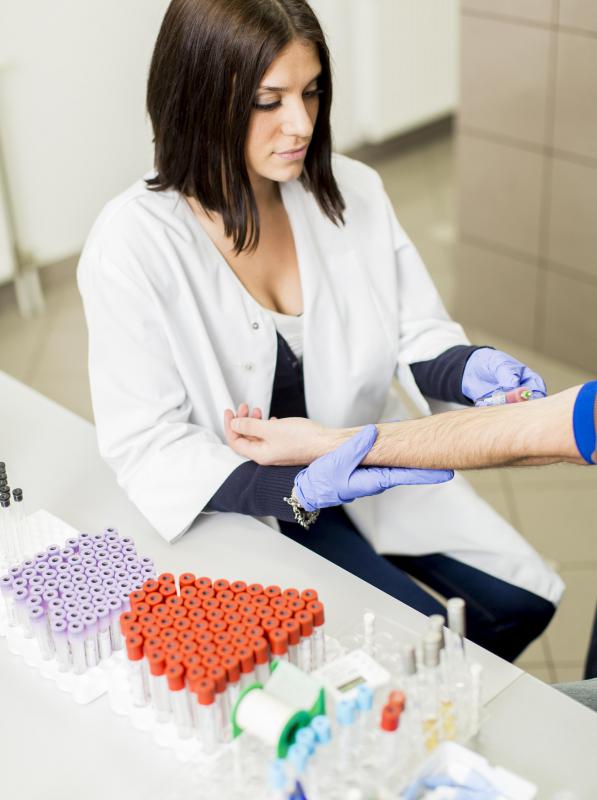At TheHealthBoard, we're committed to delivering accurate, trustworthy information. Our expert-authored content is rigorously fact-checked and sourced from credible authorities. Discover how we uphold the highest standards in providing you with reliable knowledge.
What is Antiphospholipid Antibody Syndrome?
Antiphospholipid antibody syndrome is a clotting disorder where a patient's blood begins to clot abnormally as a result of a series of autoimmune reactions. In primary cases of the disease, patients develop the condition without any preexisting and potentially connected causes, while secondary cases occur when patients have an existing autoimmune disorder and antiphospholipid antibody syndrome appears as a complication. Management of this condition usually involves treating the patient with anticoagulant medications to break up the clots and prevent potentially fatal consequences of clotting, like stroke.
In a patient with antiphospholipid antibody syndrome, the immune system develops antibodies to compounds found in the blood and starts attacking them. This causes heavy clotting. The patient is at risk of deep vein thrombosis, where a clot forms in the leg, along with blood clots elsewhere in the body, like the lungs. In addition, this condition can cause a stroke if a clot forms in the brain or travels to the brain.

In pregnant women, antiphospholipid antibody syndrome can cause severe complications including pregnancy loss. Pregnant women tend to be at risk for clotting problems in normal conditions, and the emergence of a problem with blood coagulation in pregnancy is a cause for concern. An obstetrician can evaluate a patient with a clotting disorder to determine the degree of risk and develop an appropriate plan for managing the pregnancy.

Symptoms of antiphospholipid antibody syndrome can include pain in one of the extremities and a rash. The patient's blood can be drawn to look for antiphospholipid antibodies, although it is important to be aware that the presence of these antibodies does not necessarily mean the patient has the disorder. Around two percent of the population appears to naturally develop antiphospholipid antibodies without any ill effects. For a firm diagnosis, a doctor will need to confirm the presence of clotting problems and rule out any other potential causes of the patient's clotting disorder.

Treatment of this condition starts with the use of anticoagulants to break up clots and reduce the risk of complications. If a clot has formed and cannot be broken apart with drugs, surgery to clear it may be necessary. In the case of patients who have developed complications like stroke, additional medical interventions may be necessary. For pregnant women who do not experience pregnancy loss, the pregnancy will be classified as high risk, and the patient needs to be closely monitored throughout the pregnancy. Women who have antiphospholipid antibody syndrome may want to consider avoiding pregnancy because of the increased risks.
AS FEATURED ON:
AS FEATURED ON:














Discuss this Article
Post your comments